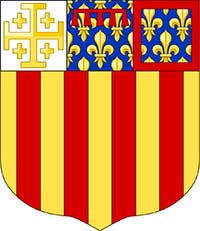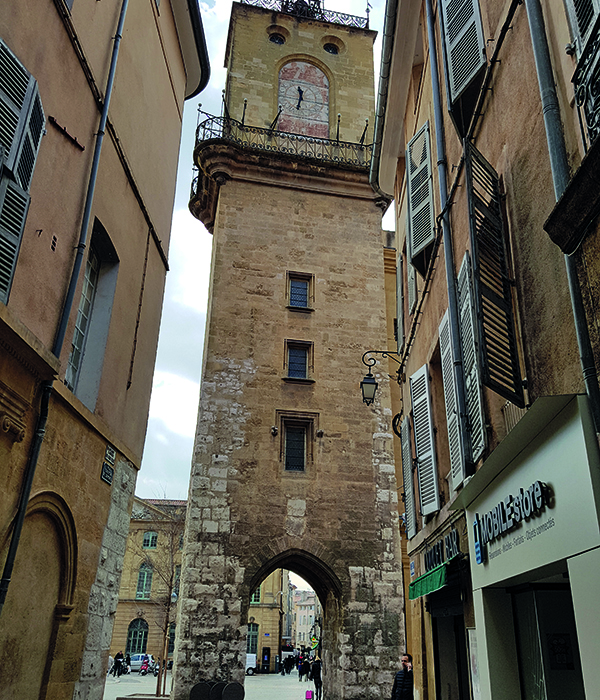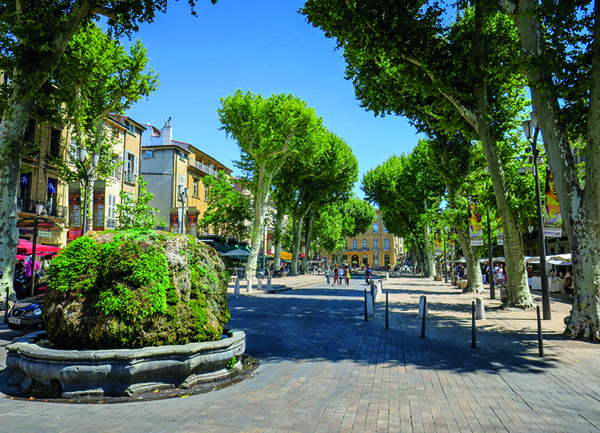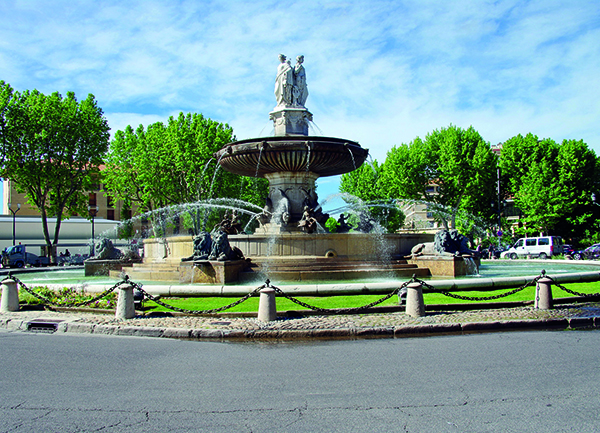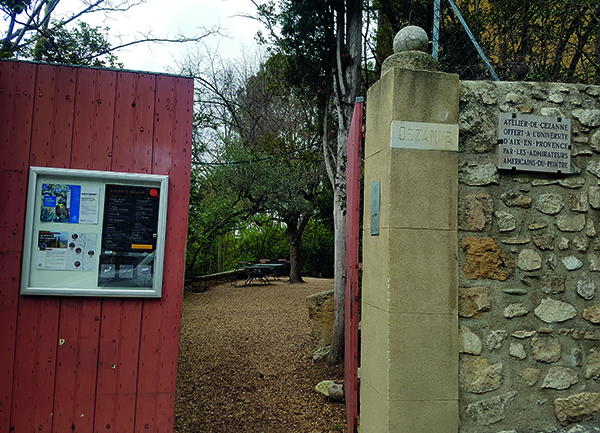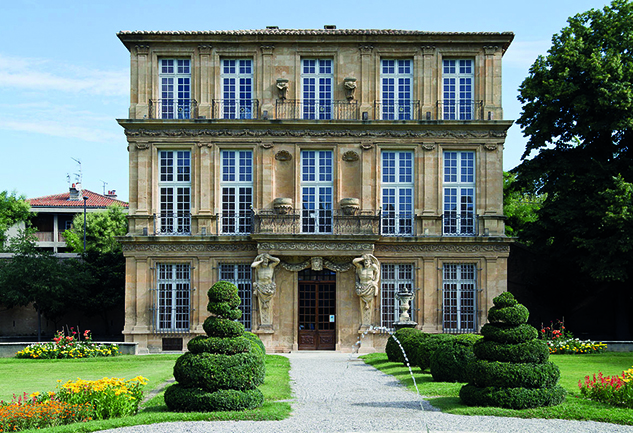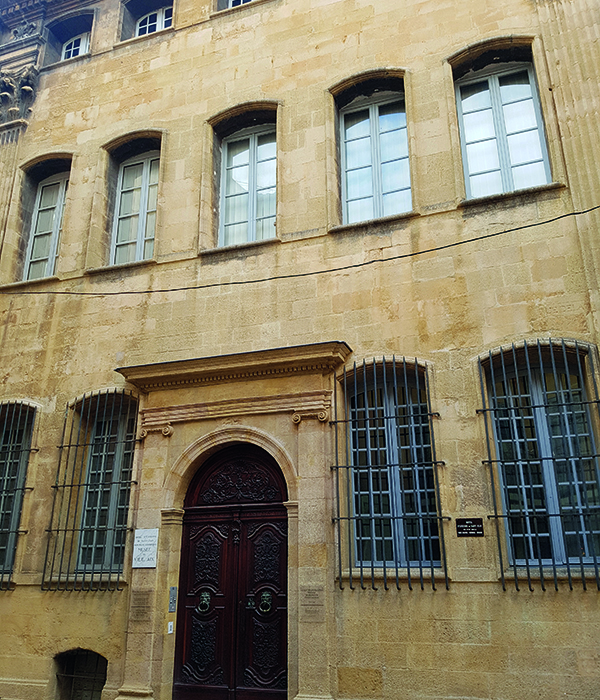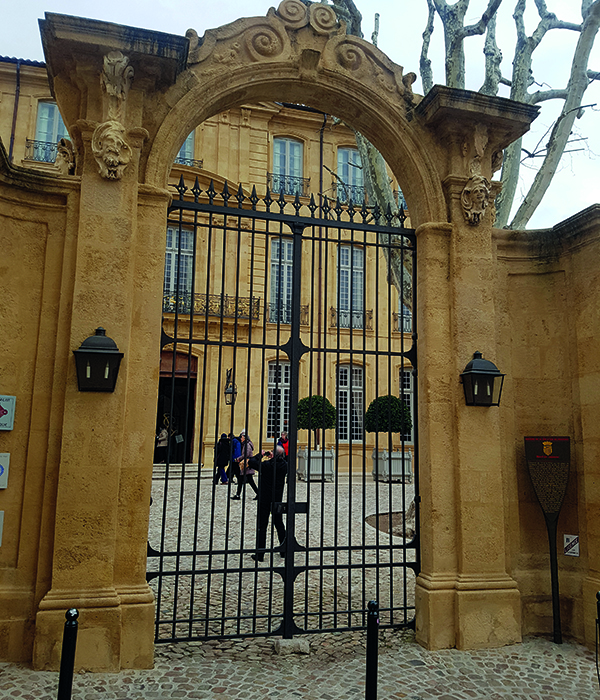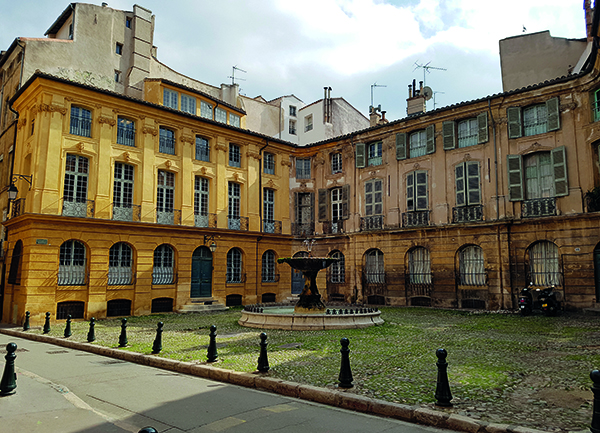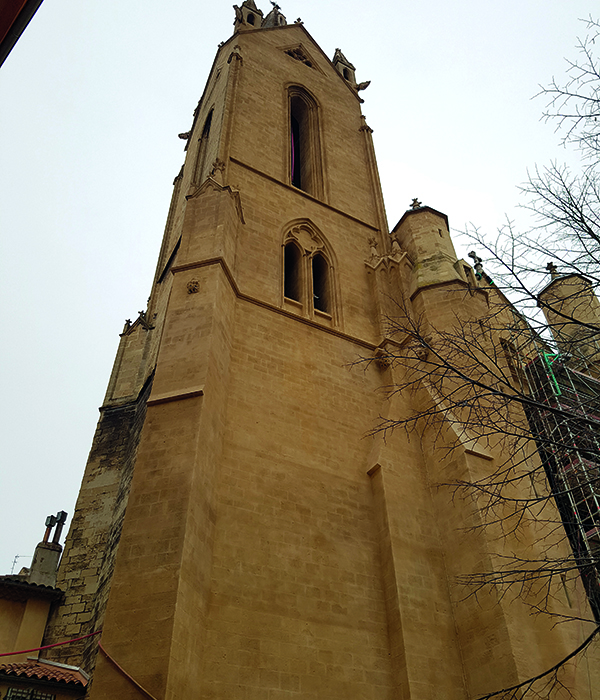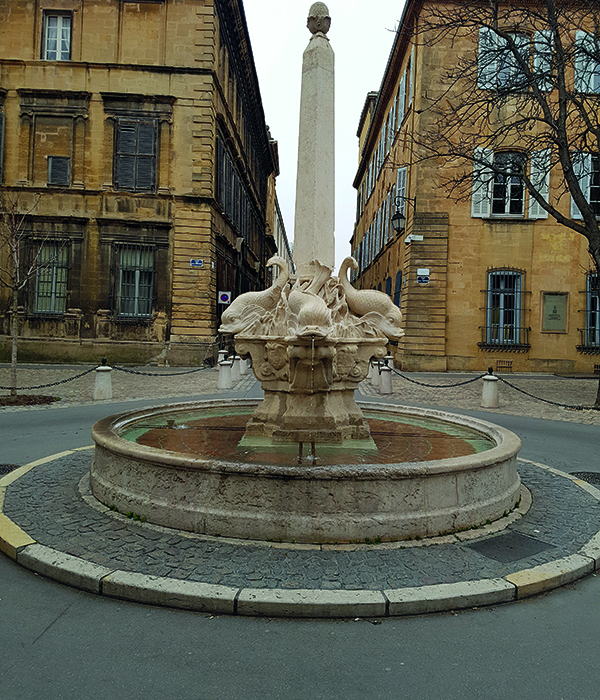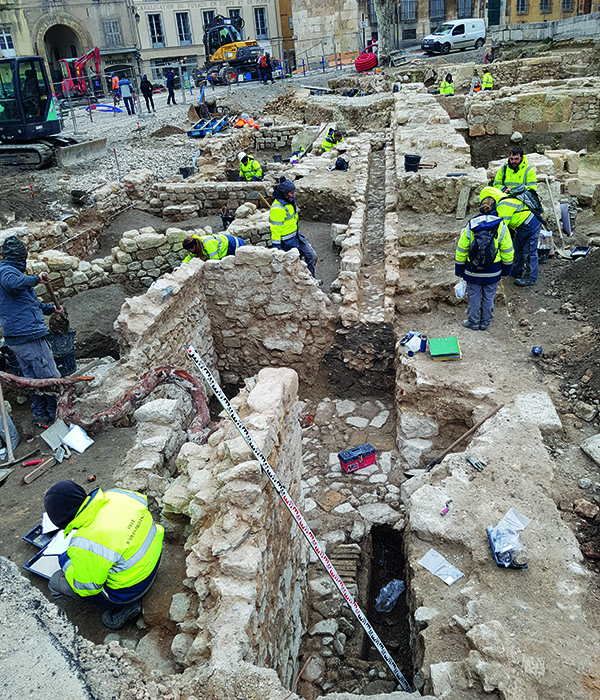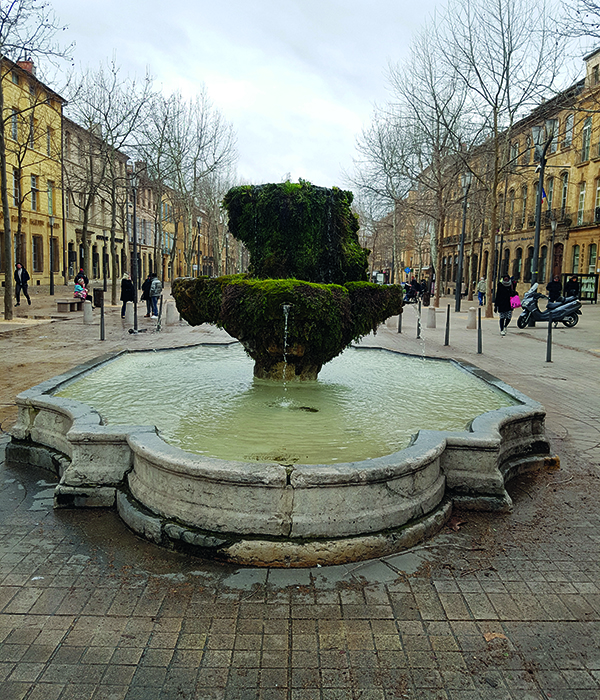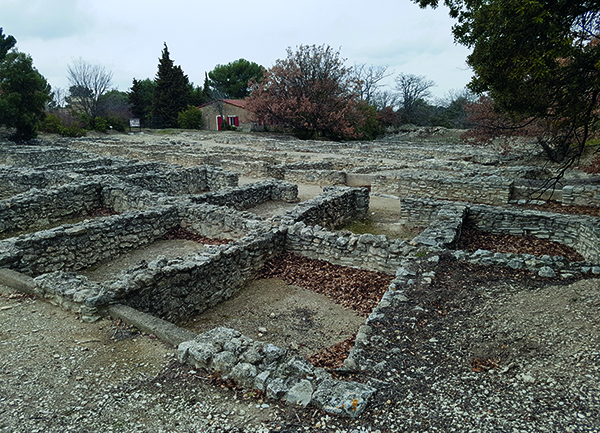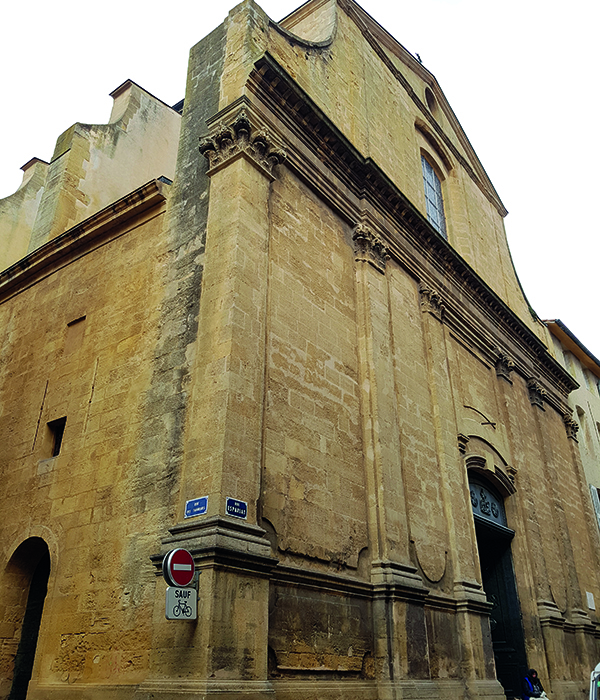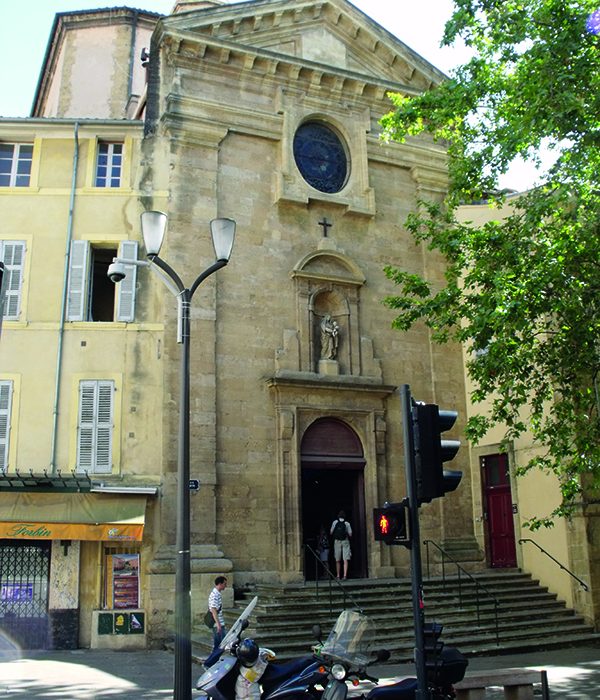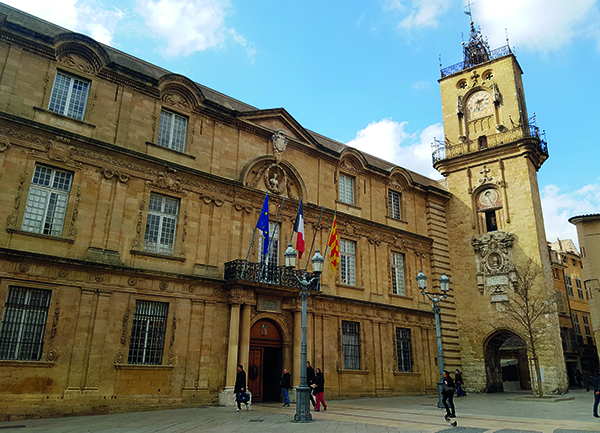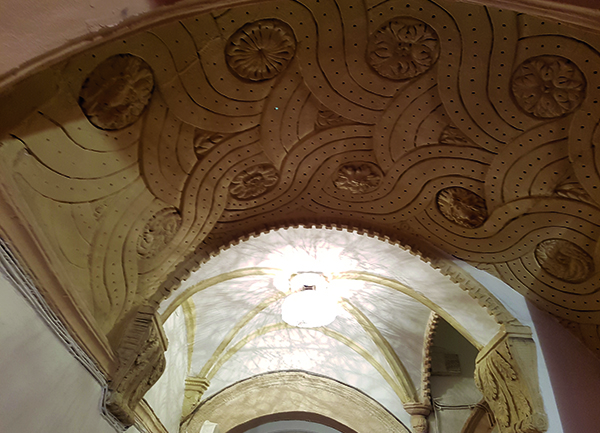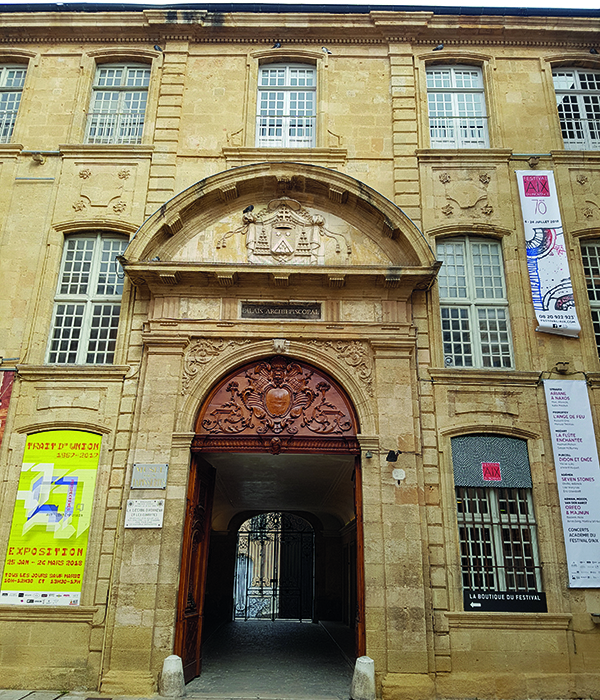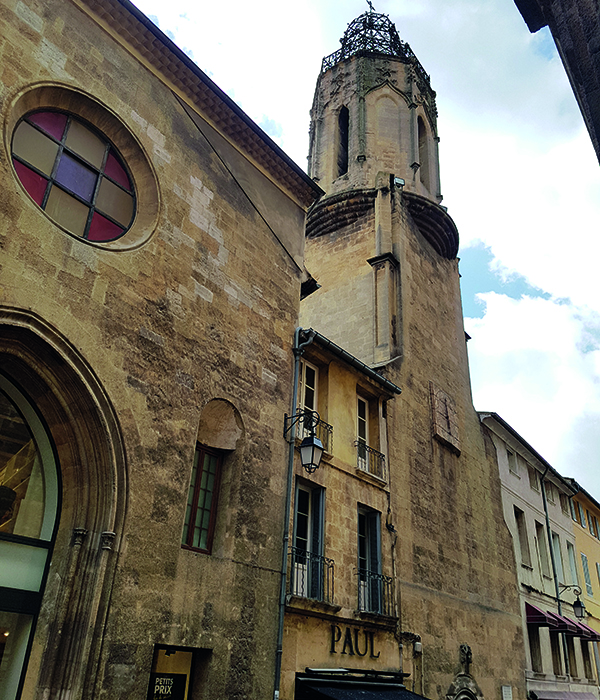HISTOIRE
Le nom Aix est commun à plusieurs
communes et hameaux en France:
provient du latin aqua «eau» au
pluriel Aquis «les
Eaux», d'où la
forme Aix. Il désigne souvent des
eaux thermales.
Aix-en-Provence,
est fondée en 122
av. J.-C., et nommée Aquae Sextiae en 102 av.
J.-C. par Tite-Live,
le fondateur de la
ville étant Gaius
Sextius Calvinus. La ville est nommée en 1250 Aquis
in Provincia. La commune reçoit son nom moderne
d'«Aix-en-Provence» en 1932.
Au IVe siècle av. J.-C., la Basse-Provence est occupée par la tribu celto-ligure des Salyens,
dont la
capitale, l'oppidum dit d'Entremont, se situe au nord
d'Aix, sur la route de Puyricard. En 123 av. J.-C.,
à la suite de l'appel des Grecs de Massalia (Marseille), en conflit permanent avec les tribus ligures
et gauloises du voisinage, le consul Gaius Sextius
Calvinus prend et détruit cette ville-oppidum. Il y installe ensuite, près des sources thermales, un camp
qui devient rapidement une ville, du nom d'Aquae
Sextiae (Eaux de Sextius), afin d'assurer la sécurité des transports commerciaux entre Rome et la
cité phocéenne de Massalia. Ainsi Aix avait été créée
pour tenir en respect le peuple salyen qui pouvait
inquiéter Marseille, l'alliée de Rome. Au IVe siècle, la
ville devient la capitale de la Narbonnaise deuxième.
Elle est ensuite occupée par les Wisigoths en 477.
Au siècle suivant, elle est envahie tour à tour par
les Francs et les Lombards, puis en 731 par les Sarrasins. Les comtes de Provence (maisons d'Anjou et
d'Aragon) décident d'en faire leur nouvelle résidence
en 1189, cette position de force va non seulement
donner à Aix le statut de capitale de Provence,
mais surtout permettre un développement sans
précédent de la ville. À ce titre, l'installation du roi
René, duc d'Anjou, comte de Provence, roi titulaire
de Sicile, au XVe siècle, marque l'âge d'or de la
cité, qui conservera à jamais le titre de «cité du roi
René». . En 1501, Louis XII y établit le Parlement de
Provence qui perdure jusqu'à la Révolution. Aix-enProvence est la ville où Paul Cézanne (1839-1906)
a passé sa vie et Émile Zola ses dix-huit premières
années. C'est au collège Bourbon (actuel collège
Mignet) que s'est forgée leur profonde amitié.
The name “Aix” is common to many towns and hamlets in
France: from the Latin word “aqua” meaning water and “aquis” in plural form, it gave the present form of the name Aix. It often refers to
thermal waters. Aix-en-Provence was founded in 122 BC and named
Aquae Sextiae in 102 BC by the founder of the city: Gaius Sextius
Calvinus. In 1250 the town was named Aquis in Provencia but it was
given its current name Aix-en-Provence in 1932.In the 4th century
BC, the Basse-Provence was occupied by the Celto-Ligurian tribe of
Salyens, whose capital the Oppidum called Entremont, was located in
the North of Aix, on Puyricard road. In 123 BC, after the call of Greeks
Marseilles who were permanently in conflict with the Ligurian and Gallic tribes, consul Gaius Sextius Calvinus took this Oppidum town and
destoyed it. Afterwords, he implemented near the thermal waters a
camp which quickly became a town named Aquae Sextiae (Sextius
Waters), to ensure security for trade between Rome and Marseille. Aix
was therefore created to keep the Salyens people under control as they
could bother Marseille, the ally of Rome. In the 4th century, the town
became the capital of the Gallic Narbonne and later on, in 477 it was
occupied by the Visigoths. The next century, the town was invaded turn
by turn by the Franks and Lombard peoples, to finally end up into the
hands of the Sarasin in 731. In 1139, The Dukes of Provence (House of Anjou and Aragon) decided to settle down in Aix. This position of
strength not only gives Aix the title of Capital of Provence but more importantly lead to a considerable growing of the town. Regarding to this,
the establishment of King René, Duke of Anjou, Count of Provence
and titular King of Sicily, marked in the 15th century the golden age of
the town. Still nowadays Aix carries the title of “City of King Rene”.In
1501, King Louis XII set up the Parliament of Provence which remained until the French Revolution. Aix-en-Provence was the place where
Paul Cézanne (1839-1906) spent his life with Emile Zola during his first
eighteen years. Their friendship has grown at the Bourbon secondary
school (currently Mignet secondary school).
